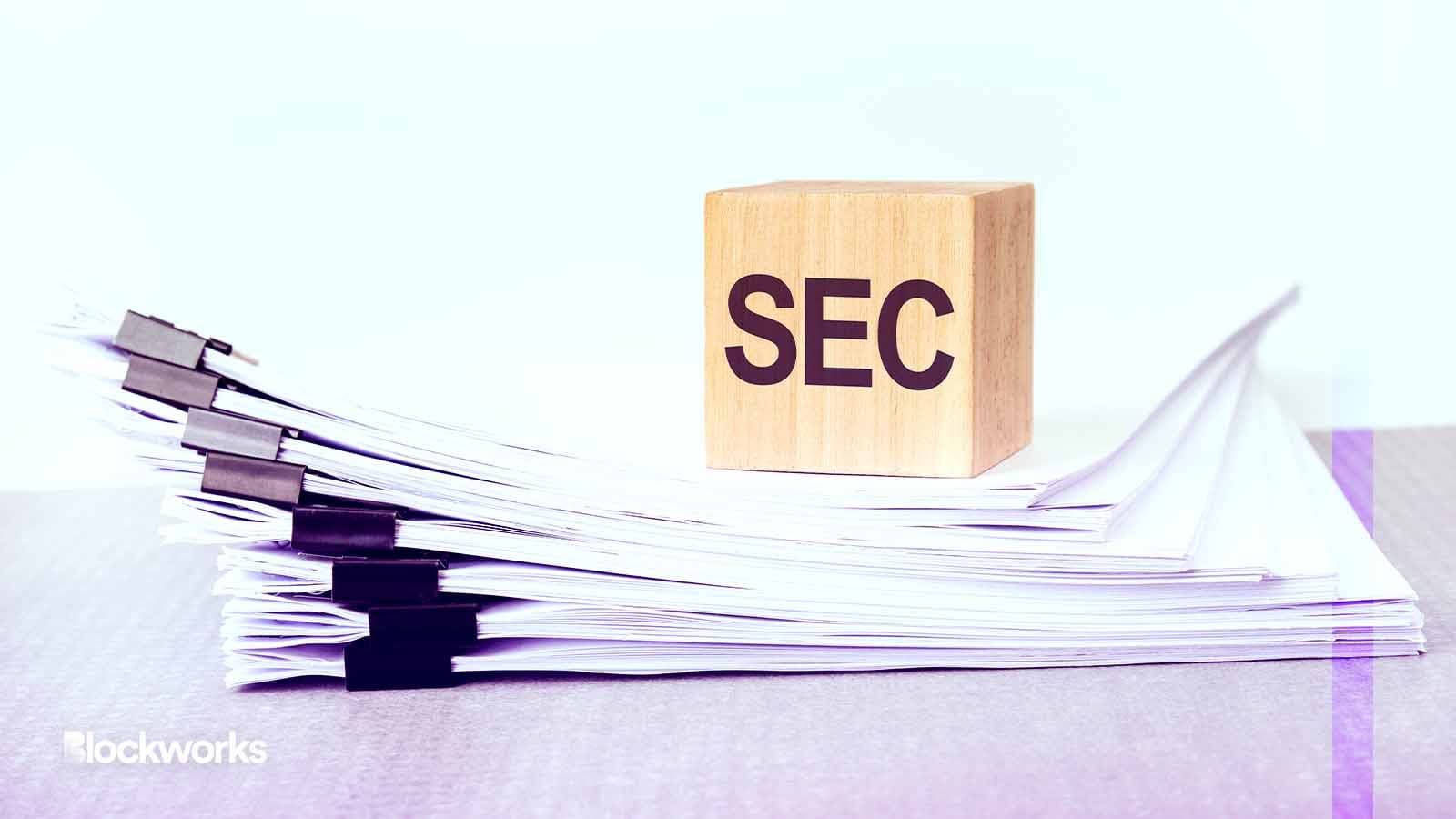SEC accused of ‘slow-rolling’ $13M DeFi Money Market payout
The case was the SEC’s first prosecution of a DeFi project — and its victims claim they’re still waiting to be made whole

Maks_lab/Shutterstock modified by Blockworks
The US Securities and Exchange Commission has been accused of dragging its feet in repaying victims more than $13 million stemming from the regulator’s first DeFi prosecution on record.
The SEC charged and, in short order, reached a settlement with Blockchain Credit Partners, known publicly as DeFi Money Market, in August 2021. Blockchain Credit Partners was incorporated in 2019 and went on to engage in a pyramid-scheme like DeFi fraud, prosecutors said.
Co-founders Gregory Keough and Derek Acree agreed to the settlement without confirming or denying guilt — with the SEC imposing an immediately effective cease-and-desist order freezing their assets.
Before the rise of DeFi in the crypto space, Keough and Acree raised approximately $30 million between February 2020 and February 2021. They accomplished this by selling two tokens through DeFi Money Market, which seemingly operated as a DEX utilizing smart contracts for the purchase and sale of these tokens.
They allegedly designed the first token, mToken, to pay owners 6.35% interest. Meanwhile, the DMG governance tokens were purported to provide voting rights, a share of profits and earnings from DMG sales in secondary markets, as stated by the SEC.
There appeared to be one main problem, per the regulator: The ill-fated projects founders did not build in a plan to deal with volatility — even after having told investors they would use capital generated from the tokens to snap up real world assets, such as car loans, to generate outside income for the DeFi project.
That included setting up a series of shell companies, including Finova Financial, that purported to engage in vehicle financing. Though some of that business may have been legitimate, the SEC claimed DeFi Money Market borrowed liberally from those separate entities and did not hold any real world assets on its own balance sheet.
Turns out that didn’t happen, with Keough and Acree allegedly claiming they had purchased car loans through DeFi Money Markets, which instead were purportedly sourced from a series of shell businesses. In reality, there was little, to nothing, of value behind the project.
Attorneys for a number of undisclosed victims in the DeFi Money Market case and settlement are making a similar claim: that there has been little, to nothing, shown by the SEC in terms of making their clients whole.
A letter sent by attorneys on July 14 for the victims in the case said the distribution process behind the SEC’s settlement disbursements had been “inexplicably slow and irregular.” The letter, which was obtained by Blockworks, was written by DC-based law firm IBL Partners and addressed to Deborah Jeffrey, inspector general for the SEC.
The letter went as far as to ask whether the agency’s “reluctance to pay just and obligatory compensation to the Victims is in any way related to their status as politically-disfavored ‘crypto investors.’”
Lawyers also floated the possibility of SEC employees “slow-rolling” the process behind the payouts” extending to “entire disfavored market segments at will.”
“This is particularly egregious where, as in this case, the matter was immediately resolved via settlement rather than litigation, thereby necessitating a much smaller overall expenditure of Agency resources than these delays would otherwise suggest,” the letter said.
Distribution plan missing
An IBL attorney wrote that the SEC, despite having settled the case in August 2021, had not since set up a proper distribution plan, instituted a comment period to solicit feedback on proceed dissemination or grant an extension.
Unlike penalties, which may be imposed by the SEC and go into the agency’s coffers, the plan was to establish a “fair fund,” attorneys said — with the intent being to redistribute the $13 million or so of funds obtained by the SEC back to the scam’s victims.
“At its most basic level, the Division of Enforcement is not following the rules of practice governing Fair Fund and disgorgement plans in this case,” the letter said.
Though it’s been about two years since the settlement, it’s still not altogether clear how much money the SEC was able to recoup from DeFi Money Markets individually, as well as from Keough and Acree, who both were slapped with their own civil penalties.
Attorneys stated that by Apr. 2, 2022 at the latest, SEC investigators from the Division of Enforcement supervising the case should have been aware of the payment statuses.
A filing from Feb. 24, the most recent publicly available SEC document pertaining to the case, indicated that a Fair Fund had been set up consisting of about $7.6 million recovered through that date — and indicated that investigators were looking to recoup additional amounts from the two individual defendants. An administrator on Feb. 24 was also tapped to oversee that process.
Attorneys for Acree and Keough did not return requests for comment. A spokesperson for the SEC likewise did not return a request for comment.
Keough and Acree were also separately sued by a former business partner, with attorneys claiming that the pair “failed to [oversee,] evaluate and implement any systems or controls over the assets and operations” of the bankrupt company, that lawsuit said.
Start your day with top crypto insights from David Canellis and Katherine Ross. Subscribe to the Empire newsletter.





